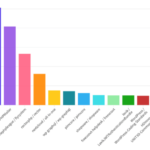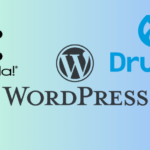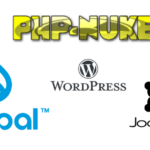 PHP, once the undisputed king of web development languages, is facing a decline in popularity. The decreasing usage trend of PHP has raised concerns among web developers and businesses alike. So, why is PHP losing popularity? There are multiple reasons for PHP’s popularity decline, including rapidly changing web development landscape and the emergence of alternative languages and frameworks.
PHP, once the undisputed king of web development languages, is facing a decline in popularity. The decreasing usage trend of PHP has raised concerns among web developers and businesses alike. So, why is PHP losing popularity? There are multiple reasons for PHP’s popularity decline, including rapidly changing web development landscape and the emergence of alternative languages and frameworks.
PHP’s waning popularity is evident from the decreasing search volume for the language. Over the past few years, the popularity of PHP has been on a downward trend.
This is not to say that PHP is no longer relevant, but rather, the web development landscape has changed, and PHP’s position in the industry has shifted.
The Rise of Alternative Languages and Frameworks
While PHP once dominated the web development scene, increasingly developers are turning to alternative languages and frameworks. Languages such as Python, Ruby, and JavaScript, as well as frameworks like Node.js, are gaining popularity due to their features and advantages over PHP.
Python, for example, has a simpler and cleaner syntax, making it easier to learn and read. Ruby is renowned for its concise and expressive code, and has a large and active developer community. JavaScript, on the other hand, can be used both for frontend and backend development, making it a versatile choice for full-stack development. Node.js, a server-side JavaScript framework, has become increasingly popular due to its impressive scalability, and its asynchronous programming capabilities that allow for fast and efficient web development.
The Benefits of Alternative Languages and Frameworks

While PHP remains a viable option for web development, the rise of alternative languages and frameworks highlights new possibilities that may not be available within PHP’s constraints. These modern languages and frameworks offer enhanced flexibility, performance, and scalability, making them an attractive choice for developers.
Additionally, these alternative languages and frameworks offer a fresh approach to web development, with new tools and techniques that can improve the development process. Developers are increasingly looking towards these new technologies for the competitive edge they provide.
Limitations of PHP for Modern Development
While PHP has been a popular language for web development, it has its limitations when it comes to modern web development practices. PHP was originally designed for static web pages, but as the web has evolved to become more dynamic, PHP has struggled to keep up with the trends.
One of the main limitations of PHP is its lack of native support for asynchronous programming. Asynchronous programming allows for faster and more efficient web development, but PHP code is executed synchronously, which can lead to slower performance and scalability issues.
In addition, PHP’s scalability and performance can also be a concern, especially for large-scale web applications. As the amount of traffic and data increases, PHP may struggle to handle the load, which can result in slow page loads and poor user experience.
Furthermore, other modern web development practices like serverless and microservices architecture are difficult to implement in PHP, which means developers may have to turn to other languages and frameworks to achieve these solutions.
Despite these limitations, PHP remains a popular language for web development, especially for smaller projects and CMS-based sites. However, for larger and more complex projects, developers may need to consider other options to meet the demands of modern web development.
Evolution of PHP Frameworks
Despite the limitations of the PHP language, the framework ecosystem around PHP has grown rapidly over the years, with developers creating modern and sophisticated frameworks to enhance the language’s capabilities. Let’s take a closer look at some of the popular and modern PHP frameworks available today:
Laravel

Laravel is currently the most popular PHP framework, designed for web artisans who value elegant, simple, and expressive syntax. It offers a wide range of features, including routing, unit testing, queueing, and authentication. Laravel is also known for its Blade templating engine, which allows developers to write clean and compact code.
Symfony
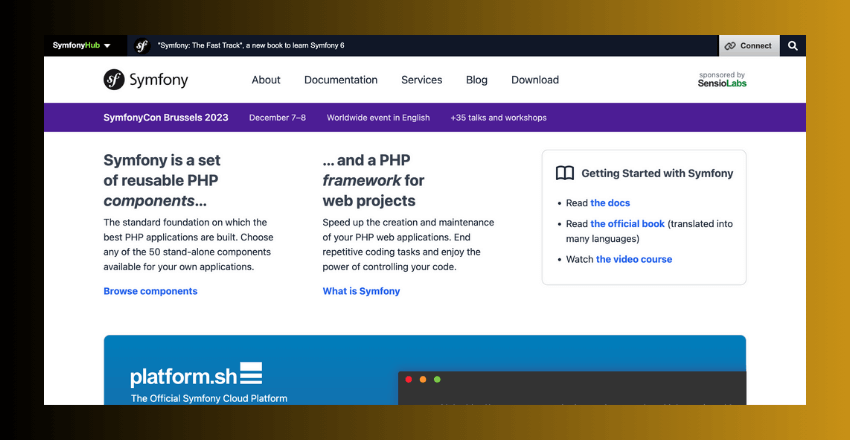
Symfony is another robust PHP framework that has stood the test of time. It was designed to deliver high-performance applications with a flexible architecture, allowing developers to integrate it seamlessly with other libraries and frameworks. The framework’s components can be used independently, making it a popular choice for developers who want to build scalable apps quickly.
CodeIgniter
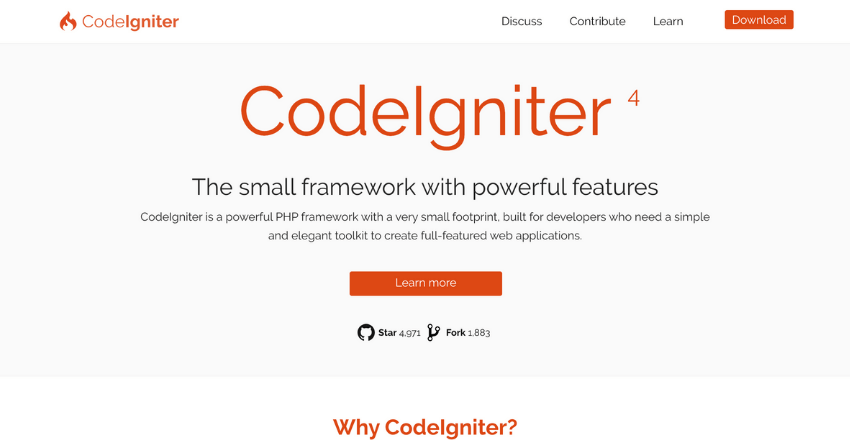
CodeIgniter is a lightweight PHP framework that is easy to learn and ideal for building small to medium-sized web applications. It is known for its speed and performance, as well as its ability to require minimal configuration. CodeIgniter has a small footprint and is perfect for developers who want to get up and running quickly.
Modern PHP frameworks like Laravel, Symfony, and CodeIgniter have revolutionized the PHP development landscape, making it more powerful, efficient, and scalable. With these frameworks, developers can build complex and high-performance web applications with ease.
The Impact of Content Management Systems (CMS)
Over the years, Content Management Systems (CMS) like WordPress, Drupal, and Joomla have revolutionized the web development industry. These systems provide users with an intuitive and user-friendly interface that simplifies content creation and management processes. However, the popularity of CMS platforms has had a significant impact on the role of raw PHP development.
CMS platforms have shifted the focus away from writing PHP code from scratch to simply using pre-designed templates and themes. This shift has led to a decline in the popularity of PHP as developers increasingly rely on CMS platforms to build and manage websites.
WordPress, for example, is currently the most popular CMS, powering over 40% of all websites on the internet. The platform’s ease of use and wide range of plugins and themes has made it a top choice for developers worldwide. Similarly, Joomla and Drupal have also gained popularity, especially in the enterprise space, where security and scalability are critical factors.
Despite CMS platforms’ impact on PHP’s popularity, it is worth noting that they still rely heavily on PHP at their core. Therefore, a basic understanding of the language is still essential for customizing and extending these platforms.
Competition from JavaScript and Node.js
As web development evolves, JavaScript has become an increasingly popular language for server-side development, with Node.js leading the charge. Node.js is an open-source, cross-platform runtime environment built on Chrome’s V8 JavaScript engine that allows developers to build fast, scalable network applications. Unlike PHP, Node.js natively supports asynchronous programming, making it an ideal choice for dynamic, real-time applications.
Node.js can also be used to create APIs and microservices, which can easily integrate with JavaScript-based front-end frameworks such as Angular and React. This has contributed significantly to its growing popularity in the web development community, especially for organizations that are transitioning to a microservices-based architecture.
Another advantage of Node.js is its extensive package ecosystem, with thousands of pre-built modules available that can be easily integrated into applications. This can save developers time and effort in building complex functionality, especially for applications that need to handle large amounts of data.
However, it is worth noting that Node.js is not a direct replacement for PHP, as they have different strengths and weaknesses. While Node.js is excellent for building real-time applications, it may not be the best choice for applications that require heavy computation or complex data processing.
Industry Examples
Several tech companies and organizations have shifted away from PHP in favor of alternative languages and frameworks. For example, Facebook, which originally developed PHP, now primarily uses Hack, a derivative of PHP designed for improved performance and scalability.
Other companies such as Spotify and Dropbox have migrated their backend systems from PHP to Python, citing Python’s ease of use and extensive libraries. Additionally, many startups and modern tech companies are choosing to build their applications with Node.js due to its fast and scalable nature.
These industry trends highlight the importance of staying up-to-date with the latest technologies and choosing the right language and framework for a given project. Web development practices are constantly evolving, and developers must adapt to the changing landscape to remain competitive and relevant.
Efforts to Revive PHP’s Popularity
Despite the challenges faced by PHP in recent years, the language’s dedicated community has made concerted efforts to address its limitations and revive its popularity.
The PHP community has made significant strides with the release of PHP 8, which offers performance enhancements and improvements in speed, error handling, and consistency. The adoption of modern coding practices, such as the use of Composer, PSR standards, and dependency injection, has also helped to modernize the language and make it more versatile.
In addition, popular frameworks like Laravel, Symfony, and CodeIgniter have continued to evolve and provide developers with the tools they need to build complex web applications with ease. These frameworks have focused on modern web development paradigms, such as asynchronous programming, scalability, and performance optimization, making PHP a viable option for any project.
The PHP community has also prioritized education and outreach, creating extensive documentation, tutorials, and online resources to help developers learn and master the language. User groups, conferences, and meetups further contribute to a vibrant and supportive PHP community.
Overall, the PHP community’s efforts to revive the language’s popularity have been commendable. With the adoption of modern coding practices, the evolution of frameworks, and a dedicated community, PHP remains a viable and powerful web development language for any project.
Navigating PHP’s Changing Landscape
The web development landscape is constantly changing, and PHP is no exception to this rule. As we have seen, PHP has been losing popularity due to the emergence of alternative languages and frameworks that better meet the demands of modern coding paradigms. Additionally, the shift towards CMS platforms and server-side JavaScript frameworks has further impacted the use of PHP.
However, the PHP community has been making efforts to address the language’s limitations and improve its performance. Initiatives like PHP 8 and the adoption of modern coding practices demonstrate the community’s commitment to reviving PHP’s popularity.
As a web developer, it is essential to evaluate your web development choices based on your specific needs and project requirements. While PHP may not be the top choice for certain projects, it still has a place in the web development landscape, and its future remains promising.
In navigating PHP’s changing landscape, it is crucial to stay informed and keep up with industry trends. The web development community is constantly evolving, and so must our understanding and use of programming languages.
Don’t let the changing web development landscape intimidate you. Stay ahead of the game by keeping yourself informed and up-to-date on the latest trends and technologies in the industry. Whether you choose to work with PHP or explore alternative languages and frameworks, make informed decisions that align with your project goals.
External Resources
FAQ

Q: Why is PHP losing popularity?
A: PHP is experiencing a decline in popularity due to various factors, including the emergence and growing popularity of alternative languages and frameworks, limitations in meeting the demands of modern development, competition from JavaScript and Node.js, and the impact of content management systems (CMS) shifting focus away from raw PHP development.
Q: What are some alternative languages and frameworks?
A: Some alternative languages and frameworks gaining popularity include Python, Ruby, JavaScript, and Node.js. These languages and frameworks offer features and advantages that attract developers away from PHP.
Q: What are the limitations of PHP for modern development?
A: PHP has limitations in meeting the demands of modern development, including lack of native support for asynchronous programming, scalability issues, and performance concerns.
Q: How have PHP frameworks evolved?
A: PHP frameworks such as Laravel, Symfony, and CodeIgniter have evolved to address some of the limitations of the PHP language. These frameworks provide various features and advantages that improve development efficiency and scalability.
Q: What is the impact of Content Management Systems (CMS) on PHP’s popularity?
A: Content Management Systems like WordPress, Drupal, and Joomla have shifted focus away from raw PHP development. These CMS platforms provide easier website creation and management, reducing the need for direct PHP coding.
Q: How does JavaScript and Node.js compete with PHP?
A: JavaScript and server-side JavaScript frameworks like Node.js have emerged as alternatives to PHP. They offer advantages such as increased flexibility, scalability, and a growing developer community.
Q: Can you provide industry examples and trends related to PHP’s decline?
A: Many tech companies and organizations have adopted alternative languages and frameworks instead of PHP, including Facebook (using Hack), Airbnb (using Ruby on Rails), and Netflix (using Node.js). This shift illustrates industry trends that influence language preferences in web development.
Q: What efforts are being made to revive PHP’s popularity?
A: The PHP community is actively working to address the language’s limitations and revive its popularity. Initiatives like PHP 8, improvements in speed and performance, and the adoption of modern coding practices are being undertaken to make PHP more competitive.
Q: What is the future of PHP?
A: The future of PHP in an evolving web development landscape is uncertain. Developers should evaluate their web development choices based on their specific needs and project requirements, considering the advantages and limitations of PHP and alternative languages/frameworks.
Ashley is an esteemed technical author specializing in scientific computer science. With a distinguished background as a developer and team manager at Deloit and Cognizant Group, they have showcased exceptional leadership skills and technical expertise in delivering successful projects.
As a technical author, Ashley remains committed to staying at the forefront of emerging technologies and driving innovation in scientific computer science. Their expertise in PHP web development, coupled with their experience as a developer and team manager, positions them as a valuable resource for professionals seeking guidance and best practices. With each publication, Ashley strives to empower readers, inspire creativity, and propel the field of scientific computer science forward.


